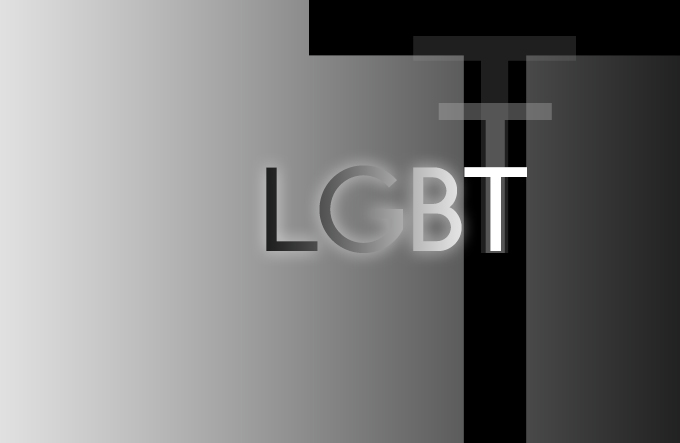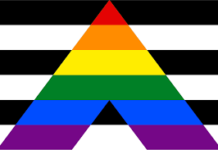
TRANS ACTION :: American lesbian Cathy Renna, media activist for the LGBT community and senior Vice Preside at Target Cue recently joined Canadian gay man Shaun Proulx, publisher of GGN for a conversation about rise in trans power. Here they discuss what caused the momentum, if there has been a “trans takeover” of the LGBT community, and whether activist gays and lesbians need to take a cue from the current trans effort.
Shaun Proulx: You and I were talking the other day, and concluded that the trans movement has never blossomed as much as it is now. LA Pride now calls itself a TLGB Festival.
Cathy Renna: I think that’s right. There’s been work going on for years and years, but a lot of it has been far less visible; many organizations and individuals within the LGBT movement. But it’s really been incredible to watch the progress. Even the last two years.
SP: You could never have imagined these kinds of changes.
CR: I wouldn’t have imagined them this quickly. I think some really great, positive examples. Laverne Cox has completely changed the way so many Americans see transgender people, because now they see someone that they feel like they know. She’s on the cover of Time, she’s been nominated for an Emmy. We’ve of course got other individuals who are extremely common and visible to the media, and very willing to tell their stories. So it’s really exciting to see what’s happening.
But it’s really not that it’s about “trans issues” – it’s about talking about gender more generally. And now we have our younger generation coming up. I think they are much more fluid about their gender expression, and gender identities. Amazing signs of progress.
SP: What is the cause, or what are the causes for the momentum? Is it about media and social media, the global village that we’re now all a part of?
CR: I think that’s right. I think when things start to happen it’s sort of a chain reaction. We started to see a lot more conversation about transgender issues even following something like “Don’t Ask, Don’t Tell”, which only affected American lesbian, gay, and bi-sexual service members. But, people immediately started asking, “What about trans-gendered service members?” And now, to be able to have access to millions of people via media and social media, to start conversations and spark conversations that you wouldn’t have had before.
SP: Acceptance (or should I say ‘tolerance’?) of trans people has come along faster than acceptance (or should I say ‘tolerance’?) of gay and lesbian people. Do you think it’s easier to accept gender fluidity than it is sexual orientation? Sex is such a difficult thing for so many people. It feels to me gender is just a topic people feel so much more comfortable considering.
CR: It’s a really good point. I think that we’ve seen and experienced through the women’s movement the changes in gender roles and ways that people can express themselves – whether it’s how they dress, and how they act – but we still see a lot of gender stereotyping, both in men and women.
What’s really interesting is we’ve got a part of the LGBT community that has always been around – but, as we used to like to joke: “the small t” – is now capital T. And that voice has just gotten louder for a variety of reasons: more gain by sexual structure, and understanding intersections between gender identity and sexual orientation. And they are supported there more, and that’s really important.
SP: The progress has been phenomenal, and I’ve been covering the movement and interviewing trans people, for years, before the momentum grew. I’ve always had a special place of admiration and respect in my heart for anyone who is so hell-bent on their own authenticity that come hell or high water, they’re going to be authentic.
I’m not just talking about surgery, obviously. I mean the entire road they choose to go on, so that they can feel comfortable in their own skin. It’s so inspiring to me, it’s just moves me so much. That said, gay man to lesbian: do you feel there’s been a Trans take-over of the LGBT movement? I’ll gossip: In my quite wide orbit of LGBT people, it’s not uncommon for some non-trans people to, not complain, but to observe, and say, “God, it’s all trans, all the time.” One gay man I know made the joke, “Well I’m the minority now.”
CR: It’s so interesting to hear things like that. I think that it’s like straight people saying, “Wait, the gays are taking over! They’re all so visible in the media!” and then the lesbians saying, “Hey, what about us!?” But I think there’s always going to be that sentiment on some level. I wish that people could celebrate, rather than somehow feel like, “What about me? What about my little piece of the pie?” That’s why we use the rainbow, right? It’s an entire spectrum of people, and we sit all around it, all of us. And not to get too political, but at the organizational, policy, and political level, “trans takeover” is really not true. Trans folks are so far behind, in terms of resources, and ability to really push policy and issues in a way that they’d like to. We’ve got a long way to go in that area, so there’s no take-over in my books, as far as I’m concerned.
SP: Maybe gays and lesbians need to take a cue from trans people. Less apathy and more looking at how to lift their own successful movements higher.
CR: I think that’s right. Look at what haven’t we done yet. I was at an event in New York City, and we were very privileged to go. My partner and I were there, and President Obama spoke. He said something at the end, which I thought was phenomenal. He talked directly to the audience, which was a primarily gay, white male, very privileged audience. He said: “You’re on the inside now, you were on the outside, now you’re on the inside. Remember who is still on the outside, and there are people on the outside that are still parts of our community, and they are people of colour, and they are women, and they are trans people, and they are young people, and from other communities.” There is a diversity in our community, that we have to remember that there’s going to have to be more to do, there’s a tonne more to do, and we have to look at that. Appreciate how far we’ve come, appreciate what we’ve achieved, which is amazing in our lifetime! But also, work on what more there is to do.
SP: For so long, here in Canada, same-sex marriage has been available to us. It is at last becoming available more and more to you in America. But frankly, I have almost forgotten it ever was an issue. I have been married for over three years, I could have kids if I wanted to… I can see why – to generalize – there could be a vibe that we’re done; those battles were so huge. And that’s not the case.
CR: I had the chance to spend some time with Edie Windsor. As everyone knows, she won the Supreme Court case that really helped boost marriage forward, incredibly, in the US last year. Talking to her and working with her is always phenomenal. Now she’s talking about other issues cares about, because she knows, now that the marriage issue is making progress, we must not leave behind, for example, young people, homeless LGBT youth. That’s an issue she cares about, she wants to speak out about. A huge percentage of the kids on the street are LGBT; I think one of the primary reasons is family rejection.
SP: There is always work to be done. I could just light a parent who would abandon their queer child on fire. It’s called unconditional love for a reason! Thanks for this conversation Cathy.
This interview has been condensed and edited.







Great article – we’re finally having real conversations about 21st century identity politics!